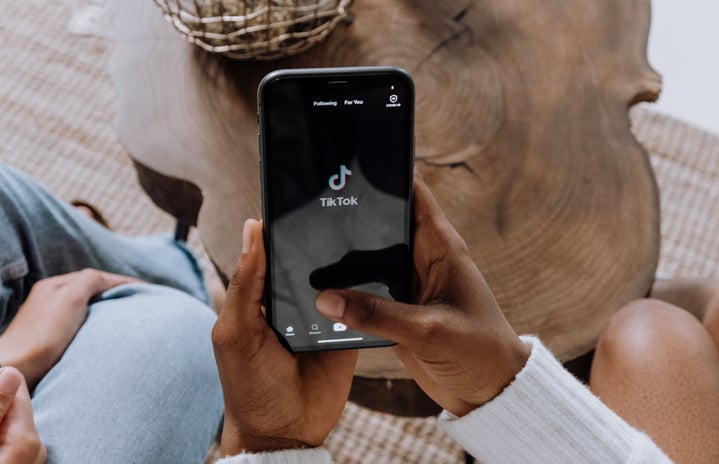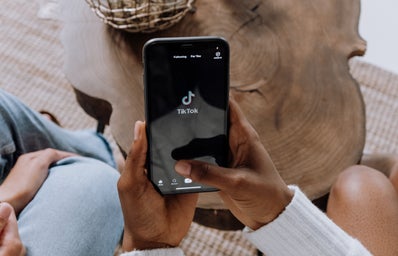With an impressive 9.3 billion views, the #thatgirl trend has been taking over TikTok since 2021. The seemingly wholesome trend is targeted at young women and invites them to get their life together and consequently #bethatgirl. The viral videos show inspiring girls and their perfect daily routines. They wake up early, even before sunrise, work out, meditate or journal, read self-help books, diligently do their work, keep up with complicated hair and skincare routines, and last but not least, eat perfectly healthy meals. #thatgirl strives for perfection.
So, what’s so bad about inspiring people to be the best version of themselves? Well, nothing. The only issue is that the viral trend is not exactly pushing people to better themselves. It’s promoting unrealistic, unachievable standards to a particularly impressionable audience: teenage girls and young women. Hidden behind the inspirational, shining façade there is a lot to unpack.
In October 2021, Glamour writer Alice Porter gathered young women’s opinions about the trend. At the time the article was written, the trend had been around for just a few months, yet its impact on girls’ mental health was already clear. Porter interviewed women aged 19 to 30 years and reported how most of them couldn’t help but compare their life to the trend and look down on themselves. Aimee, 30, felt like her life “was in tatters” when she saw the #thatgirl tiktoks for the first time. Lindy, 24, thought her life seemed “messy and chaotic in comparison” to the unrealistic trend which she found “addictive”.
In the same article, psychotherapist Michelle Scott, an expert in eating disorders, states that the trend not only lacks diversity and hyper-focuses on a specific aesthetic, but it can also be harmful. In fact, #thatgirl videos often promote weight-loss and vigorous workout routines, triggering people who have dealt with or are dealing with eating disorders. In an article for Refinery29, writer Ruchira Sharma cites another expert in the field, Dr. Stephanie Baker. Baker explains how the aesthetic yet unfulfilling meals often promoted by the trend can appeal to people who are trying to gain a sense of control by micro-managing their food intake. Excessively controlling your calorie intake and allowing yourself to only eat certain food categories are both dangerous symptoms of eating disorders such as orthorexia.
Another worrying aspect of the viral videos is the emphasis on being constantly productive and on top of your schedule, ticking items off your to-do-list 24/7. In a late 2010s revival, #thatgirl resembles the Girl Boss trend, which associated success with toxic over-productivity and hustle culture. Any trend that implies that if you try hard enough you can solve your problems and be as successful as online influencers and “It girls”, is inherently dangerous. It goes without saying that there are people who can’t be productive and active at all times, such as those affected by attention disorders, are on the spectrum, or struggle with mental illnesses. #Thatgirl lifestyle is simply not a reality for almost one-third of young women in the UK who are struggling with anxiety and depression.
Neurodivergent individuals, and in general, those struggling with mental health are not the only marginalised groups left out and not represented by the trend. Both Michelle Scott and Ruchira Sharma mentioned the issue of whitewashing. While the trend is popular among people of every ethnicity, the stereotypical #thatgirl is skinny, healthy, active, conventionally attractive and… white. In 2022, an aesthetic that idolises and revolves around only white women while failing to represent minorities is simply not acceptable.
The aim of this article is definitely not to villainise content creators that upload #thatgirl and lifestyle videos painting all of them in the same negative light. It would be wrong to generalise and deny that some TikTokers create content that fits under the hashtag but doesn’t promote its toxic standards. It’s also true that some users do find comfort and motivation in the #thatgirl aesthetic. However, taking into consideration the dangerous effects that it can have on young people, it is simply essential to continue exposing its negative side.
Remember that while it’s great to aspire to be more, it’s always better to be true to yourself.
If you or someone you know are going through a mental health crisis, do not hesitate to reach out and ask for help.
Eating Disorders Helplines (UK):
England: 0808 801 0677
Scotland: 0808 801 0432
Wales: 0808 801 0433
Northern Ireland: 0808 801 0434
Mental Health Helplines (UK):
Samaritans: 116 123
SANEline: 0300 304 7000
National Suicide Prevention Helpline UK: 0800 689 5652


